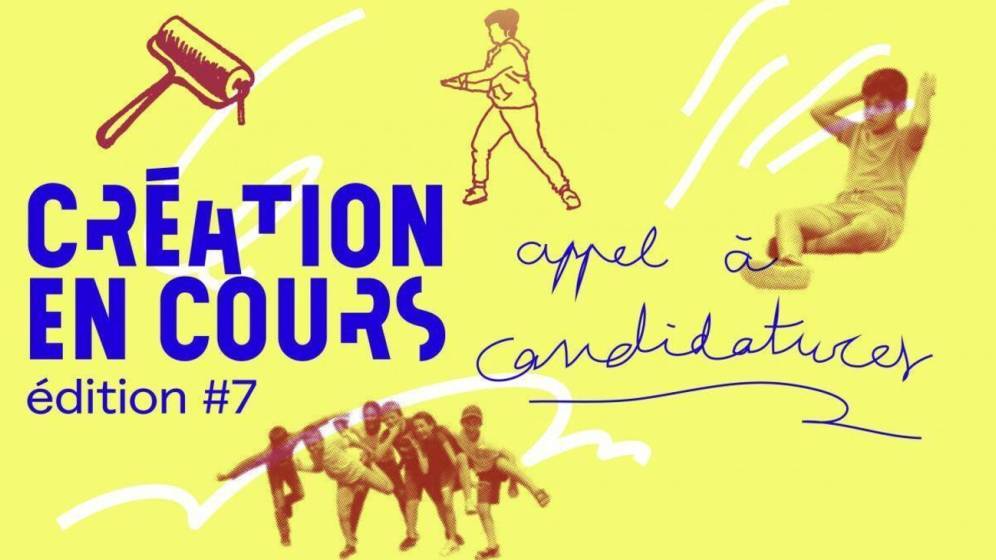Côtes-d'Armor: public elementary school, 22200 Graces
Florence Wuillai, project "Let’s get back to business"
Discipline: design
"Let’s get back to business" is a project that seeks to work for the French wool industry. This fibre, long considered obsolete, constitutes every year a gigantic deposit of natural matter. Wool is also synonymous with diversity since there are 55 species of sheep in France. Florence seeks to account for this diversity and bears witness to the use of these fibres in the production of felted textiles. Beyond the technicality, wool proves to be an incredibly creative and cultural opening.
By registering in a territory, Florence goes to meet the local sheep breeds, studies them to discover their uses. She is interested in pastoral practices, because the quality of the wool depends on it, as well as the balance of the territory. The time has come for transformation, which it tries to articulate with regional actors. The goal of this project is to participate in a rural economy with ecological and social issues.
For children, it is an opportunity to discover the economic, ecological and social activities of their region.
Finistère : école primaire publique des Moulins, 29860 Plouvien
Naomi Christophe-Filatriau and Tamaya Sapey-Triomphe, project "While the sea rumbles"
Discipline: installation
This project of residence is built on lines of documentary and architectural research around the elaboration of a new underwater object/work. The artists and students launch a field survey to question the inhabitants of military ports and their relationship with these deep waters. They investigate, camera, pencils and paper in hand, to determine a mapping of the stories of the community and the collective imagination around submarines. They investigate the history of the military port city from its inhabitants and their relationship to the open sea. The children question their families and passers-by and figures of the city (for example: Thérèse, manager of a military stock on the avenue of the Republic). The first phase of the project involves an exhibition of all the documents produced by the students. The next step is to take action collectively by building a means of transport: the new underwater object/work.
Ille-et-Vilaine: public elementary school, 35490 Vieux-Vy-sur-Couesnon
Ilann Vogt, project "the library of the imaginary"
Discipline: visual arts
Ilann Vogt is a tireless weaver of literature, a practice to which he has dedicated 11 years of his existence, allowing to weave nearly 450 texts, of Looking for lost time Marcel Proust (200x800 cm) to theEternity Arthur Rimbaud (5x5 cm). In this work of Penelope, he has recently devoted himself to the elaboration of a library of 1000 woven texts, formatted in museum boxes. Thus, he wishes to co-construct and co-create with the students, perpetuate this library by integrating student stories. Self-portraits written and woven. Three major phases are on the program, a first of discovery and exploration of words as matter, material. A period of construction, writing from this material, then a final phase of plastic creation around weaving.
Morbihan: Ar Milad Elementary Public School, 56320 Lanvénégen
Rémi Coignec, project "Loose earth"
Discipline: visual arts
The Gulf of Morbihan is an area extremely rich in megalithic sites that appeared in the Neolithic period. This period saw the appearance of sedentarization and thus the construction of the first villages, today partially submerged under the "small sea" (Mor-Bihan).
The Village proposes to explore together the notions of collective territory, urban planning and organization of living spaces to several notably through visits to prehistoric sites, field surveys in the city, photographic surveys, drawing and mapping workshops.
By drawing our influences from a multitude of references, immersed both in the traces of the past and in the imagination deployed by children, we will try to create a fictional territory, invented by the class, which will take the form of an installation making dialogue the diorama of this territory and the processes of development of this village whose children will be both the planners and the inhabitants.
The "Creation in progress" mechanism
This is a national program managed since 2016 by the Medici workshops with the support of the Ministry of Culture and in partnership with the Ministry of Education, Youth and Sports.
Its purpose is to:
- Support emerging artists from all disciplines for a research and creative project;
- Allow the privileged encounter between students and emerging artists during transmission sessions (20 days maximum) organized in a privileged way, for the benefit of a class of CM1 or CM2. These sessions of transmission are articulated to the research and creation project of the selected artists and come to rhyme their artistic residencies of 6 months, deployed every year between January and July.
For the 2022-2023 school year, "Creation in progress" will associate 111 artist projects with 111 schools, contributing to the 100% objective BEC .
The programme is aimed at schools in a priority area (rural areas, city policy districts and overseas).
Partager la page
